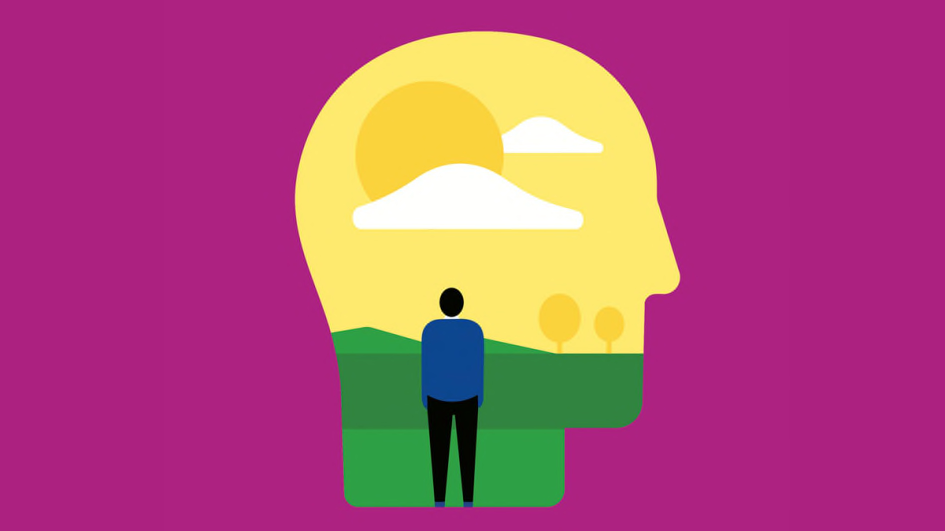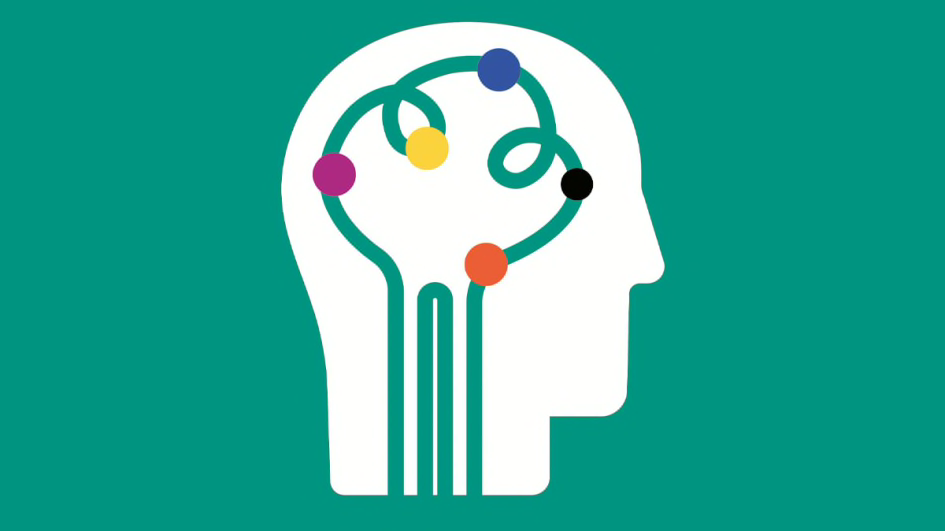It's Not Too Late. You Can Boost Your Brainpower at Any Age.
Memory-building games, superfoods, supplements. What really works to preserve—and even enhance—your thinking skills.

Keeping our brains and memories sharp is certainly on our minds these days. In fact, 34 percent of Americans say they’ve noticed signs of forgetfulness significant enough to worry them, in a March Consumer Reports nationally representative survey of 2,116 adults.
It’s true that the numbers of those diagnosed with Alzheimer’s disease, which robs sufferers of cognition, are predicted to keep climbing. And we’ve yet to find a cure. In fact, aducanumab (Aduhelm), the first new Alzheimer’s drug to be approved in almost two decades, may offer little benefit, according to a number of experts.
But evidence is piling up that lifestyle steps may reduce brain disease risks and help us maintain cognitive strength. A major 2020 report in The Lancet suggests that 12 factors within our control—including smoking, poor fitness, and obesity—are responsible for up to 40 percent of dementia cases.
We’re also seeing the potential in personalized prevention for those at higher risk for poor brain health. Take one study published in 2019, where researchers tailored risk reduction advice to volunteers’ cognitive test results, weight, and levels of blood pressure, cholesterol, and blood sugar.
After 18 months, most of the 174 participants—all with a family history of Alzheimer’s—had improved on thinking and memory evaluations. For those who had followed recommendations closely, “results were quite stunning,” says study co-author Lisa Mosconi, PhD, director of the Alzheimer’s Prevention Clinic at Weill Cornell Medicine in New York City. More research is needed, but “our findings make clear that it’s never too late to make key lifestyle changes, and see brain benefits,” Mosconi says. And because issues like high blood pressure are now known to have negative effects on thinking many years later, it may never be too early to focus on brain health, either. What follows are some strategies to consider.

Illustration: Jennifer Tapias Derch Illustration: Jennifer Tapias Derch
5 Brain Health Basics
Keeping an eye on your overall health is key for brain health, but it may be especially important to prevent certain medical issues—and address them promptly if they do crop up. A few other regular self-care steps may also help you preserve thinking and memory.
Watch These Health Numbers
Monitoring and managing your blood pressure, cholesterol, and blood sugar levels are essential for optimal brain function, research suggests. “We know diseases like hypertension and type 2 diabetes damage the small blood vessels in the brain, affecting parts that you need for thinking and memory,” says Gary Small, MD, chair of psychiatry at Hackensack University Medical Center in New Jersey and author of “The Memory Bible” (Hachette Go, 2021). This may be important sooner in life than you’d expect. While we know that uncontrolled hypertension in midlife hikes the risk of dementia in older age, a study published in March in JAMA Network Open found that higher blood pressure in young adulthood was linked to poorer brain health as early as in middle age. Another study published in March found that lower HDL (“good”) cholesterol and higher triglycerides in people as young as 35 was associated with dementia decades later—and linked high blood glucose between ages 51 and 60 to a higher risk of future cognitive problems.
Go for a Hearing Exam
If you often have difficulty following a group conversation, have your hearing checked. A number of studies suggest that hearing issues may affect your brain. For instance, an analysis of 36 studies, published in 2018 in JAMA Otolaryngology–Head & Neck Surgery, found that age-related hearing loss was linked to an increased risk of cognitive decline. Even very minor losses may contribute. “Your brain is like a computer that’s reliant on input source—if you distort the audio and video quality, it can’t compute properly,” says Ronald Petersen, MD, director of the Mayo Clinic Alzheimer’s Disease Research Center in Rochester, Minn. Sometimes, the fix is as simple as having your doctor remove excess ear wax (don’t DIY). But for permanent hearing loss, a hearing aid may be your best bet.
Get Good Sleep
As you slumber, your brain stays surprisingly busy, helping to solidify your memories for long-term storage. In addition, “When you’re asleep, your brain goes into housekeeping mode and cleans out toxins that can impair brain health,” says James Leverenz, MD, director of the Center for Brain Health at the Cleveland Clinic. While sleep needs vary from person to person, about 7 hours a night appears to be the sweet spot for the brain, according to a 2020 study published in JAMA Network Open. Getting some of your snooze time during the day is okay, too: A regular afternoon nap of no more than 2 hours was associated with better language use and memory in older adults, in a study published last year in the journal General Psychiatry. But frequently sleeping more than 9 hours a night may signal that you have an underlying condition that can negatively affect brain health, like obstructive sleep apnea, says Small—so check with your doctor if you typically sleep this long.
Have Your Meds Reviewed
Your doctor or pharmacist should go over your regular meds—including over-the-counter products and supplements—at least once a year, says Soo Borson, MD, professor emerita of psychiatry and behavioral sciences at the University of Washington School of Medicine. They can see whether any may temporarily impair memory or thinking, such as prescription and OTC sleep drugs, older antihistamines, and anti-anxiety meds and narcotics. Note: Certain anticholinergics, like some older antidepressants and overactive bladder meds, are linked to a higher dementia risk, even 20 years after use.
Feeling Anxious
Both depression and chronic anxiety may make people more vulnerable to dementia as they age, so you may want to reach out to a therapist if you’re experiencing either. “If you’re depressed or anxious, you’re more likely to experience an increase in stress hormone levels, which are very toxic to brain cells,” says Petersen. “We also know that depression and anxiety have been linked to a shrinkage of the hippocampus, a part of the brain involved in memory.” Plus, mood issues can reduce your desire to see friends and family, and isolation itself can raise your risk of dementia. (For more on how social activities can help shore up your cognitive reserves, see “Keep Your Brain Engaged,” below.)

Illustration: Jennifer Tapias Derch Illustration: Jennifer Tapias Derch
4 Things That Are Hard On Your Brain
Smoking
Tobacco use can hurt your brain. One review of 37 studies found that compared with never-smokers, current smokers are 34 percent more likely to develop dementia in later life for every 20 daily cigarettes. Quitting can lower risks significantly, especially if you kick the habit by middle age.
Junk Food
Limit highly processed foods and those high in saturated fat, like red meat and full-fat dairy. “They increase inflammation everywhere in your body, including your brain, which raises your risk of dementia,” says Gary Small, MD.
Too Much Alcohol
Heavy drinking can kill brain neurons and accelerate memory loss, says Small. Research bears this out. More than 14 weekly drinks was linked to brain damage and a higher dementia risk, in a 2020 review published in the journal Neuropsychiatric Disease and Treatment. Small advises no more than two drinks a day for men and no more than one for women.
Air Pollution
“We think pollution is toxic to nerve cells,” says neurologist Joel Salinas, MD, who specializes in Alzheimer’s disease at NYU Langone in New York City. In his research on elderly women, those exposed to the most fine-particle pollution—think car emissions—had the largest amount of brain shrinkage. Earlier research suggests that middle-aged and older people living in London’s most polluted sections have a greater likelihood of dementia. Consider restricting outdoor activities if the air quality index is over 100 (check at airnow.gov), avoid high-traffic areas while exercising, and at home, ban smoking, limit fireplace use, and keep rooms well-ventilated.

Illustration: Jennifer Tapias Derch Illustration: Jennifer Tapias Derch
Eat for Brain Strength
Consuming a mix of nutrient-packed foods—not focusing on a single “superfood”—and maintaining a normal weight are two pillars of cognitive well-being. And embracing the former can help with the latter.
Choose Flavonoids
People who got as little as a daily half-serving of flavonoid-rich foods like apples, berries, and pears were 20 percent less likely to report thinking declines than those who rarely ate them, in a long-term study. Flavonoids may curb inflammation and cell damage, and aid artery blood flow, says co-author Walter Willett, MD, professor of epidemiology and nutrition at Boston’s Harvard T.H. Chan School of Public Health.
Be Careful With Supplements
A host of dietary supplements are sold as brain-boosters. But they have no benefit for most people, says a report by AARP’s Global Council on Brain Health. And 2020 research found that some may contain unapproved drugs. Still, omega-3 fatty acid supplements may be worthwhile for those with a family history of dementia, says Mosconi. Vitamin B12, vitamin D, and folate deficiencies have also been linked to cognitive issues, so consider having your levels tested. Talk with your doctor before using supplements.
Serve Up a Salad
Eating just 1 cup of lettuce daily, or ½ cup of cooked dark leafy greens, may delay age-related cognitive declines, say researchers at Rush University Medical School in Chicago. In their study, the brains of daily leafy greens eaters functioned as well as those of people 11 years younger.
Consider the Big 3
Meals that are 1⁄2 produce, ¼ lean protein, and ¼ whole grains, with a bit of fat, will generally keep you on a healthy track. But three plant-based eating plans—the DASH, Mediterranean-style, and MIND diets—which are rich in produce, whole grains, legumes, nuts, and healthy fats found in foods such as avocado, fatty fish, and olive oil, are a boon for the brain, says Weill Cornell’s Lisa Mosconi, PhD. Research supports all three, but a 2019 review published in Advances in Nutrition found that the MIND eating style—which puts more emphasis on berries and leafy greens—seems to have the most robust brain benefits.
Load Up on Berries
These tiny fruits are powerhouses for both learning and memory, says Barbara Shukitt-Hale, PhD, a neuroscientist at the Jean Mayer USDA Human Nutrition Research Center on Aging at Tufts University in Boston. In her own research, older people who consumed the equivalent of 1 cup of fresh blueberries each day for three months performed better on cognitive tests than those who were given a placebo. And a 20-year study of women ages 70 and older suggests that eating blueberries at least once each week or strawberries at least twice a week may delay brain aging up to 2.5 years.
Indulge That Coffee Craving
People who drank 2 to 3 cups of coffee plus the same amount of tea daily had about a 30 percent lower risk of dementia and stroke compared with those who sipped neither drink, in a study published in PLOS Medicine in 2021. This may be thanks to the drinks’ plentiful antioxidants and flavonoids, says Small. Note: U.S. guidelines recommend no more than 400 milligrams of caffeine daily—approximately 3 to 5 cups of coffee.
Dine on Seafood Often
You’ve probably heard fish has brain benefits, and plenty of research backs this up. For instance, a study published last November in the journal Neurology found that healthy people over age 65 who eat two or more weekly servings of fatty fish like salmon, tuna, and sardines may have a lower risk of developing vascular brain disease, which can cause dementia. Dining on fin food four or more times weekly offers the most benefit. “Fatty fish is rich in omega-3s, which help quell brain inflammation,” says Willett. “It may also be that fish is a healthy substitution for foods high in saturated fat, like red meat, which can be harmful for brain health.”

Illustration: Jennifer Tapias Derch Illustration: Jennifer Tapias Derch
Beating Brain Fog
We’ve been hearing a lot lately about “brain fog,” which can manifest in fuzzy thinking and poor focus. While brain fog can be caused by anything from a sluggish thyroid to a vitamin B12 shortfall, it may also occur with and after recovery from COVID-19.
In one study published in the journal JAMA Network Open, of 740 people who’d recovered from COVID-19 an average of 7.6 months earlier, a quarter of the study volunteers reported that they had experienced memory issues, while another 18 percent said they had trouble processing information. In addition, 16 percent struggled with executive function, which is related to skills like organization and self-control.
Do you suspect your cognitive fogginess is related to coronavirus? Ask your doctor about an appointment for a neuropsychological evaluation at a post-COVID-19 recovery clinic. You may be an appropriate candidate for cognitive rehabilitation therapy, which works to improve your memory, attention processing, and problem-solving.
If your fogginess is unlikely to be a result of COVID-19, your doctor can run blood tests to determine whether you have an issue that may respond to medication, or in the case of a vitamin deficiency, possibly a supplement, says Petersen.

Illustration: Jennifer Tapias Derch Illustration: Jennifer Tapias Derch
The Exercise Rx
We’ve long known that what’s good for your heart is good for your brain—especially physical activity. “Regular aerobic exercise boosts blood flow to your brain and also increases the size of your hippocampus, the part of your brain that’s involved in verbal memory and learning,” says Zaldy Tan, MD, MPH, medical director of the Jona Goldrich Center for Alzheimer’s and Memory Disorders at the Cedars-Sinai Medical Center in Los Angeles. Try these steps to reap the rewards.
Get Enough Physical Activity
The Centers for Disease Control and Prevention (CDC) recommends that all adults get 150 weekly minutes of moderately intense exercise, such as brisk walking. That could mean exercising for about 30 minutes five times a week. Tan, meanwhile, recommends about 30 minutes each day. But if you can go longer, do. Research suggests that exercise sessions of 45 to 60 minutes offer the biggest brain benefits. Been inactive? Sedentary people older than age 55 showed improvements in thinking after just six months of walking three times a week, in a study published in 2019 in the journal Neurology.
Give Yoga or Tai Chi a Try
Yoga’s benefits are two-fold: It’s effective for easing stress (which can muddy your thinking) and practicing unfamiliar moves helps your brain to create new neural pathways, says Cathy Ciolek, PT, president of the Academy of Geriatric Physical Therapy. Tai chi, with its slow, gentle movements, “forces your body to work on both strength and balance, and you have to learn and remember various poses,” says Leverenz. Research suggests that tai chi may also improve your ability to multitask.
Take a Dance Lesson (or Two)
Older adults who danced several times a week showed less loss of the brain’s white matter than those who did activities that weren’t as cognitively challenging, socially engaging, or vigorous, in a study in Frontiers in Aging Neuroscience. If dance isn’t for you, try another activity where you can learn or socialize, like water aerobics.
Pump Some Iron
Six months of resistance training may help prevent the brain’s hippocampus from shrinking with age, says a 2020 University of Sydney study. “When you lift weights, you’re really focused on form and performing specific moves, which in turn exercises the neural circuits in your brain,” says Small. “It also improves balance, which reduces your risk of a bad fall that could potentially cause a head injury”—a threat to cognitive health. Small recommends two weekly resistance training sessions of 30 to 45 minutes. You don’t have to bench-press the big weights, though. Using your own body weight, hand weights, or exercise bands will do the trick. Start light and increase reps and weight gradually. Find four moves.

Illustration: Jennifer Tapias Derch Illustration: Jennifer Tapias Derch
Keep Your Brain Engaged
Will one of those brain-training programs sharpen your thinking skills? Research suggests they’re only minimally useful, says Mosconi. “Just because you’ve learned to play a brain game doesn’t mean you’ll see an improvement in memory, attention, and focus in other areas.” Instead, check out these science-backed ways to challenge your brain.
Make Learning a Lifelong Pursuit
Education early in life appears to help preserve brain health many years down the road. But trying new activities and building new skills throughout life may also help to reduce the risk of cognitive decline, says Heather Snyder, PhD, vice president of medical and scientific relations at the Alzheimer’s Association. Anything that stimulates your brain counts, Snyder says, from learning to paint to a college lecture to a new exercise class—especially if it brings the chance for some social engagement.
Retire a Little Later
Working until age 67 or later may offer a buffer against age-related cognitive problems, suggests a study published in 2021 in the journal SSM Population Health. When researchers tracked the work histories of 20,469 people, they found that those who retired sooner experienced earlier declines in memory and thinking than those who stayed on the job. Volunteering probably has similar benefits, perhaps by keeping people cognitively, socially, and physically active, and instilling a sense of purpose.
Focus on Simple Acts
Learning to speak French or taking courses in an area that’s new to you may both be good for the brain. But the truth is, so are everyday activities like letter writing, reading, playing board games, and doing puzzles, according to research published in the journal Neurology last year. Even mowing the lawn or doing laundry helps you hang on to brain cells: In another study published in 2021, adults who spent more time on household chores had a larger hippocampus and frontal lobe than those who didn’t.
Hang Out With Friends
Socializing looks to have brain-positive effects. One example: People who were more socially active had more healthy brain tissue than those who were less likely to spend time with others, in a study published in 2020. But a large friend group isn’t essential. “The key is the quality and frequency of social support they provide, so if you just have a handful of close friends who are good listeners and supportive, that may be enough,” says neurologist Joel Salinas, MD. The goal is warding off loneliness, because it “might increase levels of the stress hormone cortisol, which can have a negative impact on the brain,” he says.
Mix Things Up
Regularly engaging in a wide variety of activities may give your brain more protection than any single pastime does, a study published in 2021 in the journal Aging suggests.
Practice Relaxation
Mindfulness activities like meditation may help curb brain issues—even in those who already have cognitive problems. In a study published in the Journal of Alzheimer’s Disease in 2018, people with memory challenges who did a daily 12-minute meditation reported clearer thinking after three months. Meditating “reduces stress and inflammation, which are both toxic to the brain,” says Ronald Petersen, MD. It may also enhance connections between brain nerve cells, another plus for cognition. Meditation workshops are often offered at community centers and medical centers, or via videos, apps like Headspace, or websites like UCLA’s MARC. But you can also simply spend a few minutes a day breathing in and out slowly and deeply, or do an activity that relaxes you, like taking in the greenery and sunshine at a nearby park.

Illustration: Jennifer Tapias Derch Illustration: Jennifer Tapias Derch
More Than Forgetfulness?
It’s normal to occasionally misplace your eyeglasses or forget where you parked at a mall, especially if you’re multi-tasking, sleep deprived, or stressed, says James Leverenz, MD. With age, you may also notice that it takes longer to retrieve some information—such as people’s names—but that with a bit of time or a hint or two, you remember. But see a doctor if you (or others) notice that you have a regular pattern of one or more of the following:
• Asking the same question repeatedly, especially with behavior changes.
• Mixing up words, saying “radio” instead of “TV,” for instance.
• Placing items in inappropriate places, like car keys in the fridge. Eleven percent of Americans reported doing this in CR’s survey.
• Getting lost while driving to places you know well.
• Experiencing mood changes for no apparent reason.
Your doctor will first check for reversible causes like depression or a drug side effect. They can also determine whether you should be evaluated by a neurologist, a brain disease specialist. And if you’re told you have mild cognitive impairment—marked by subtle thinking and memory change—remember that lifestyle steps like exercise and a healthy diet may help keep it from worsening.
Editor’s Note: This article also appeared in the June 2022 issue of Consumer Reports magazine.
Correction: This article has been updated with the correct workplace location for James Leverenz, MD.




















